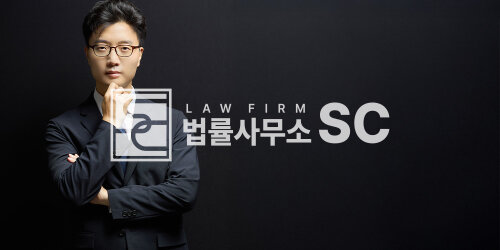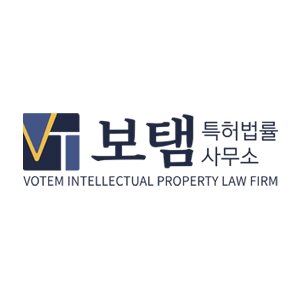Best Private Equity Lawyers in Seoul
Share your needs with us, get contacted by law firms.
Free. Takes 2 min.
List of the best lawyers in Seoul, South Korea
About Private Equity Law in Seoul, South Korea
Private equity (PE) involves making investments into private companies or conducting buyouts of public companies to delist them from stock exchanges. In Seoul, South Korea, the private equity market has grown rapidly, supported by a sophisticated investment environment and regulatory framework. Overseen primarily by the Financial Services Commission and the Financial Supervisory Service, private equity activities are typically structured through Private Equity Funds (PEFs) established under Korean law. These funds channel capital into corporate acquisitions, restructurings, and growth investments within Korea and, increasingly, abroad.
Why You May Need a Lawyer
Engaging in private equity transactions often involves complex business structures, significant capital, and intricate regulatory requirements. Here are common situations where legal advice is crucial:
- Establishing or structuring a private equity fund under local laws.
- Negotiating and drafting investment agreements or partnership arrangements.
- Conducting due diligence on potential target companies.
- Ensuring compliance with Korean financial regulations, including reporting and anti-money laundering obligations.
- Handling cross-border transactions and understanding foreign investment restrictions.
- Managing disputes among fund participants or stakeholders.
- Navigating tax implications for both domestic and foreign investors.
- Advising on exit strategies such as IPOs, trade sales, or secondary buyouts.
Without proper legal guidance, investors and fund managers expose themselves to regulatory risks, financial penalties, and potentially damaging disputes. Legal professionals help ensure that PE transactions are executed smoothly and in compliance with all local and international obligations.
Local Laws Overview
Private equity activities in Seoul are governed by several key laws and regulations, most notably the Financial Investment Services and Capital Markets Act (FSCMA). Key aspects include:
- Fund Formation: Private equity funds must be registered and managed by a licensed General Partner (GP) or management company. There are specific minimum investment requirements and types of investors permitted under Korean regulations.
- Foreign Investment Rules: While South Korea welcomes foreign capital, there are restrictions and reporting obligations regarding certain sectors and investment sizes, overseen by the Foreign Investment Promotion Act (FIPA).
- Disclosure and Reporting: PEF managers are required to maintain transparent records, submit regular reports, and uphold fair practices to protect investors’ interests.
- Antitrust and M&A: The Monopoly Regulation and Fair Trade Act (MRFTA) applies to M&A transactions, requiring clearance for deals exceeding certain thresholds in terms of market share or transaction size.
- Taxation: Both local and foreign investors face specific tax liabilities depending on investment structures, requiring special attention to double-taxation treaties and withholding taxes.
Abiding by these regulations ensures both compliance and successful outcomes for private equity investors and fund managers operating within Seoul.
Frequently Asked Questions
What is a Private Equity Fund (PEF) in South Korea?
A PEF in South Korea is an investment vehicle created to pool investors’ capital for acquiring stakes in companies, typically with a view to restructure, grow, or sell these businesses for profit.
Who can invest in a Korean Private Equity Fund?
Generally, only qualified institutional investors, such as financial institutions or high net worth individuals, can invest in PEFs due to regulatory restrictions on minimum investment sizes.
Is foreign participation in Korean PEFs allowed?
Yes, foreign investors can participate, though they are subject to regulations under the Foreign Investment Promotion Act and may need to meet additional requirements or seek approvals for certain investments.
How are private equity transactions regulated in Seoul?
Private equity transactions are primarily governed by the Financial Investment Services and Capital Markets Act, which sets out rules for fund formation, operation, reporting, and investor protection.
What approvals are needed for a private equity acquisition?
Larger transactions or those in regulated sectors may require approvals from sector-specific regulators as well as review by the Korea Fair Trade Commission for antitrust considerations.
Are there tax implications for investing in Korean private equity?
Yes, tax obligations vary based on investor status, fund structure, and involvement in cross-border transactions. Legal advice can help minimize tax liabilities and ensure compliance with double-taxation treaties.
What is the role of a General Partner (GP) in a PEF?
The GP is responsible for fund management and investment decisions. Only registered or licensed management companies can act as GPs under Korean law.
Can private equity funds invest outside of South Korea?
Yes, Korean PEFs can invest abroad, but may require compliance with foreign exchange control regulations and additional reporting.
What happens if a dispute arises among PEF investors?
Disputes are generally resolved in accordance with the partnership agreement and may involve arbitration, mediation, or civil litigation, depending on the terms agreed upon by the parties.
How long do private equity investments in Korea typically last?
Most private equity funds in Korea have a lifespan of five to ten years, with exit strategies planned from the outset to align with investor interests and regulatory requirements.
Additional Resources
For further information or support regarding private equity in Seoul, consider reaching out to the following organizations:
- Financial Services Commission (FSC)
- Financial Supervisory Service (FSS)
- Korea Venture Capital Association (KVCA)
- Korea Exchange (KRX)
- Korean Bar Association (advice on retaining licensed legal counsel)
These bodies regulate, advise, and facilitate private equity activities across South Korea and can provide official guidance or relevant documentation.
Next Steps
If you are considering engaging in private equity activities in Seoul or require legal assistance, it is important to take the following steps:
- Evaluate your investment goals and identify the type and structure of the private equity transaction you are considering.
- Gather all available documentation regarding the transaction, proposed fund, or target company.
- Consult with a qualified lawyer specializing in private equity and financial regulation in Korea for personalized advice.
- Ensure due diligence is conducted thoroughly to evaluate legal, financial, and regulatory risks.
- Maintain ongoing communication with your legal counsel to ensure compliance with changing regulations during the lifecycle of your investment.
With professional legal support, you can navigate Korea’s private equity environment confidently and maximize the success of your investments.
Lawzana helps you find the best lawyers and law firms in Seoul through a curated and pre-screened list of qualified legal professionals. Our platform offers rankings and detailed profiles of attorneys and law firms, allowing you to compare based on practice areas, including Private Equity, experience, and client feedback.
Each profile includes a description of the firm's areas of practice, client reviews, team members and partners, year of establishment, spoken languages, office locations, contact information, social media presence, and any published articles or resources. Most firms on our platform speak English and are experienced in both local and international legal matters.
Get a quote from top-rated law firms in Seoul, South Korea — quickly, securely, and without unnecessary hassle.
Disclaimer:
The information provided on this page is for general informational purposes only and does not constitute legal advice. While we strive to ensure the accuracy and relevance of the content, legal information may change over time, and interpretations of the law can vary. You should always consult with a qualified legal professional for advice specific to your situation.
We disclaim all liability for actions taken or not taken based on the content of this page. If you believe any information is incorrect or outdated, please contact us, and we will review and update it where appropriate.















